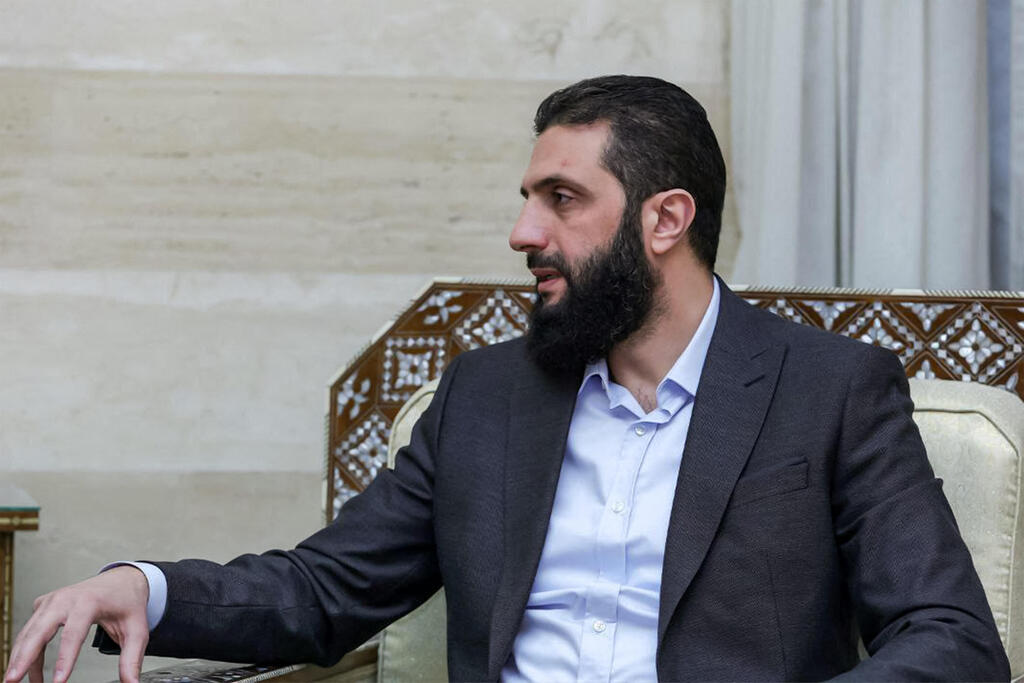Getting your Trinity Audio player ready...
The United States announced Friday the removal of a $10 million bounty on Ahmad al-Sharaa, formerly known as Abu Mohammed al-Golani, the leader of Syria’s jihadist movement.
The decision came after Assistant Secretary of State for Near Eastern Affairs Barbara Leaf met al-Sharaa in Damascus, following his emergence as Syria’s de facto leader after President Bashar Assad’s ousting. "We discussed the critical need to ensure terrorist groups cannot pose a threat inside Syria or externally, including to the U.S. and our partners in the region," Leaf said. "Based on our discussion, I told him that we would not be pursuing the Rewards for Justice reward offered."
Leaf emphasized the importance of unity and sovereignty, saying, "We fully support a Syrian-led and Syrian-owned political process that results in an inclusive and representative government which respects the rights of all Syrians, including women, and Syria’s diverse ethnic and religious communities.” She added that U.S. policy seeks to stabilize Syria economically and politically, free from Iranian and Russian interference.
In a significant move, three senior U.S. diplomats, including Leaf, Special Presidential Envoy for Hostage Affairs Roger Carstens and newly appointed Syria Special Advisor Daniel Rubinstein, visited Damascus for the first time in 12 years.
Get the Ynetnews app on your smartphone: Google Play: https://bit.ly/4eJ37pE | Apple App Store: https://bit.ly/3ZL7iNv
Their mission focused on engaging directly with Syrian civil society and new leadership as the country transitions post-Assad. The visit does not signal an immediate reopening of the U.S. Embassy, officials clarified, saying that recognition will depend on concrete actions by Syria's new leaders.
Leaf described al-Sharaa as "pragmatic" and said Iran would have no role in Syria’s future. "Iran’s destructive influence has no place here, but Turkey will have a role due to its security interests as a neighboring country," she added.
2 View gallery


Ahmad al-Sharaa, formerly known as Abu Mohammed al-Golani
(Photo: Abdulaziz KETAZ / AFP)
The Biden administration had previously grappled with how to engage with Syria’s new leadership, given the designation of leading rebel groups as terrorist organizations. Leaf highlighted that the U.S. calls for an inclusive political process respecting human rights and minorities, noting internal pressure on Syria’s interim leadership to meet these demands in exchange for lifting sanctions.
The U.S. State Department reiterated its commitment to supporting Syrians’ vision for their future and announced plans to engage directly with Syrian activists, civil society leaders and diverse communities to guide U.S. policy.
Meanwhile, U.S. Central Command (CENTCOM) announced on Friday the elimination of Islamic State leader Abu Yusif in an airstrike in Syria’s Deir ez-Zor province. The strike, which also killed another Islamic State operative, was part of CENTCOM’s mission to disrupt terror networks.
"We will aggressively target these leaders and operatives, including those trying to conduct operations external to Syria," CENTCOM Commander Gen. Michael Erik Kurilla said, citing concerns over ISIS's intent to free more than 8,000 detained terrorists in Syria.



